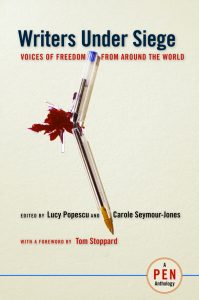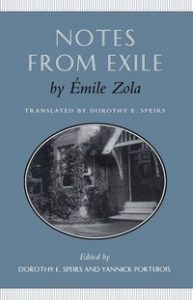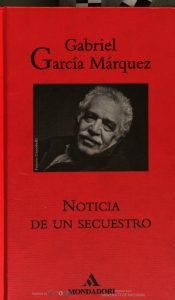Established in 1981 by PEN International, November 15th annually “calls for urgent international action to protect writers and journalists across the globe, who increasingly find themselves targeted for their peaceful free expression work.” (PEN International, 2020). However, from Fyodor Dostoevsky to Angela Davis, writers were persecuted before 1981 and continue to be in 2020.
You can get your Human Rights research started at the Political Science Research Guide. Several reasons can lead books to be banned or challenged, but most authors are persecuted for political reasons. You can find resources on and by exiled, silenced, imprisoned writers at UBC Library.
 Writers Under Siege: Voices of Freedom from Around the World – Edited by Lucy Popescu and Carole Seymour-Jones
Writers Under Siege: Voices of Freedom from Around the World – Edited by Lucy Popescu and Carole Seymour-Jones
Prepared by PEN International, this book brings texts by over 50 authors who have a paid high price for the freedom of writing.
Émile Édouard Charles Antoine Zola was a French writer.
In 1898 Zola wrote a famous letter to the president of France entitled J’Accuse!, an expression that you probably seen on pop culture. The letter accused the unfair and anti-semitic trial of “…Alfred Dreyfus, a Jewish officer who had been accused of treason by the French army. … [and] blamed the army for covering up its mistaken conviction of Dreyfus. … Zola was brought to trial on Feb. 7, 1898, and was sentenced to one year’s imprisonment and a fine of 3,000 francs after being found guilty of libel.” (Encyclopaedia Britannica, 2016).
Although he was not imprisoned, Zola was exiled in England, where he wrote Notes from Exile, about his feelings towards exile. This edition includes photos taken by the author in the late 1890s.
Gabriel García-Marquez – Noticia de un secuestro [News of a kidnapping]
Gabriel García-Marquez (or Gabo, if you were his friend), was a Colombian writer and journalist, and one of the creators of the magical realism genre. Gabo, a left-winged thinker, spent decades in exile and was constantly under US government surveillance due to his friendship with former Cuban Prime Minister Fidel Castro.
In this work, García-Marquez reports on the 1990 kidnappings of 10 Colombian men and women – almost all journalists – by Pablo Escobar.
 Liu Xiaobo – No enemies, no hatred : selected essays and poems
Liu Xiaobo – No enemies, no hatred : selected essays and poems
Liu Xiaobo was a Chinese writer, philosopher and defender of freedom of expression. He “took part in the student protests on Tiananmen Square in 1989. For that he was sentenced to two years in prison. Later he served three years in a labour camp for having criticised China’s one-party system. … In 2008, Liu was a co-author of Charta 08, a manifesto which advocates the gradual shifting of China’s political and legal system in the direction of democracy. He was arrested in December 2008, and sentenced a year later to eleven years’ imprisonment for undermining the state authorities. Liu has constantly denied the charges. “Opposition is not the same as undermining”” (The Nobel Prize, 2010)
No enemies, no hatred presents a collection of poems, essays and public documents by Liu Xiaobo.
 Salman Rushdie – Salimar the Clown
Salman Rushdie – Salimar the Clown
Sir Salman Rushdie is a British Indian writer who, like García-Marquez, combines magical realism and historical fiction (“Salman Rushdie”, 2020). In 1988 he published The Satanic Verses, which degraded and infuriated Muslims, and led Iranian Ayatollah Khomeini to call on Muslims to kill the author in 1989. “The author, who was knighted in 2007, said that year that he saw the fatwa as “a piece of rhetoric rather than a real threat.” While Rushdie remains unharmed, the backlash to his novel is responsible for dozens of deaths and injuries around the world.” (History, 2019)
You can use our Get It service to check-out The Satanic Verses, or read Salimar the Clown online!
Want to take action? Every year, 5 people are selected to have their cases highlighted by the PEN, and you can find 2020 cases here: Day of the Imprisoned Writer 2020 . You can follow PEN International on Twitter.
If you are in Vancouver, our local public library has created a fantastic BiblioCommons list for this memorable day.
REFERENCES
Encyclopaedia Britannica. (2016). J’Accuse. In Encyclopaedia Britannica. https://www.britannica.com/topic/Jaccuse
History. (2019, October 30). Iran’s Ayatollah Khomeini calls on Muslims to kill Salman Rushdie, author of “The Satanic Verses”. https://www.history.com/this-day-in-history/salman-rushdie-satanic-verses-fatwa-iran
The Nobel Prize. (2010). Liu Xiaobo Facts. https://www.nobelprize.org/prizes/peace/2010/xiaobo/facts/
PEN International. (2020). Day of the Imprisoned Writer 2020. https://pen-international.org/protecting-writers-at-risk/day-of-the-imprisoned-writer-2020
Salman Rushdie. (2020, October 31st). In Wikipedia. https://en.wikipedia.org/w/index.php?title=Salman_Rushdie&oldid=986329441
Singleton, Bradley. (2020). [no title] Photograph. Unsplash. https://unsplash.com/photos/D-Mba_WB5K8


